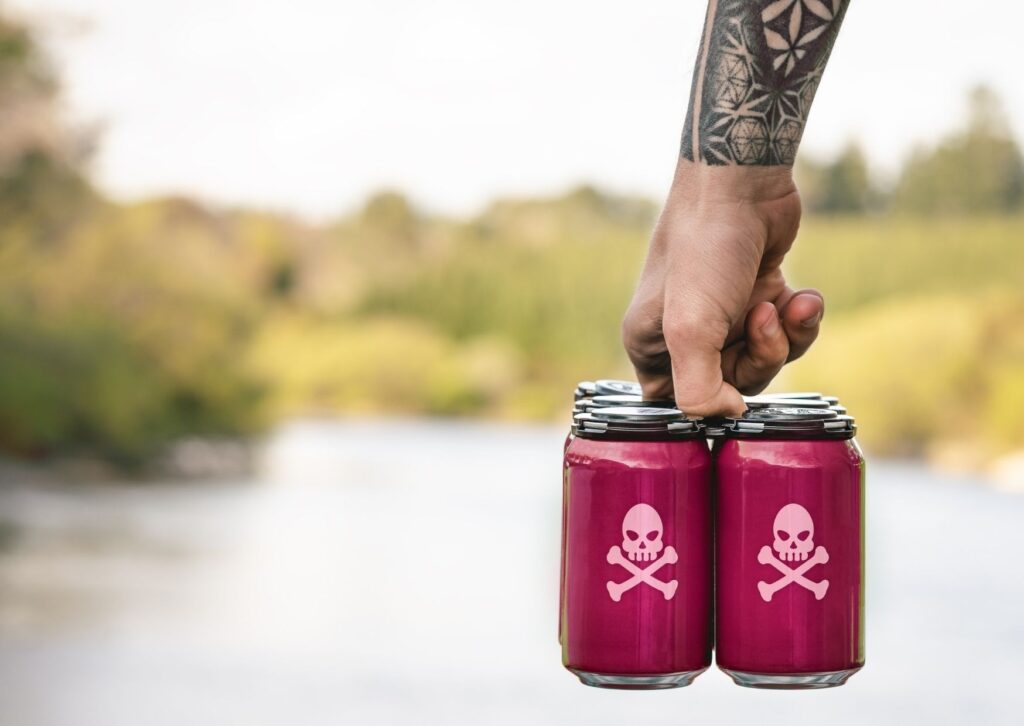Alcohol Awareness Week
After a long day at work, on a night out, or for a special event, some individuals like an alcoholic drink. Drinking may be used as an escape to help you forget about the problems you’re having in life, or it can simply be used to unwind and relax.
The Chief Medical Officer recommends that you stick to the weekly recommendations of no more than 14 units (equivalent to 6 pints of beer, 6 125ml glasses of wine or 14 shots of whiskey).
It might be difficult to determine how much is too much, as most individuals believe they can tell when they have gone too far.
But drinking isn’t about how much you drink in one sitting; it’s about your relationship with alcohol and how it affects your life.

When is Alcohol awareness?
Alcohol Awareness Week is a week dedicated to raising awareness, advocating for change, and helping to improve individuals’ relationships with alcohol.
The subject of Alcohol and Relationships was the focus of Alcohol Awareness Week 2021, which ran from November 15th to November 21st.
In 2022, Alcohol Awareness Week will take place on November 11th to November 16th. ‘Change’ will be the theme.
Why is Alcohol awareness week important?
According to the NHS, there were 5,698 alcohol-related fatalities in England in 2018, with 358,000 alcohol-related hospital admissions in 2018/19.
Alcohol Change has also stated, there are an estimated 602,391 dependent drinkers in England. As a result, alcohol is one of the numerous issues that we face today.
Alcohol Awareness Week gives us all an important opportunity to discuss the concerns surrounding alcohol and its effects on our physical and mental wellbeing, as well as our relationships, allowing us to make better drinking decisions.
It gives us the chance to listen to one another carefully and with openness to better comprehend how our actions influence our loved ones.

What can companies do to support Alcohol awareness week?
Employers must be aware of the indications of alcoholism and ready to support employees who need treatment. Alcohol misuse is a possible expression of stress, anxiety, and depression accounting for lost productivity. Alcohol Change UK states that lost productivity from alcohol misuse costs the UK economy more than £7 billion each year.
This isn’t only about a duty of care; it’s also economically sound. Positive culture and wellbeing initiatives improve the bottom line by retaining and recruiting good employees.
Employers should have a support structure in place for workers who are having trouble coping, whether it’s with a job or personal concerns.
It’s all about retaining and attracting top employees. If you have a reputation for burning and spitting people out, you will not attract top talent.
Loving Life delivers a range of services for employee wellbeing which can support companies in looking after employee wellbeing.

How can alcohol affect us?
Alcohol is a depressant that affects the chemicals in the brain that control inhibition. With more alcohol consumed, the initial ‘good’ sensation is frequently replaced with a negative emotion such as anxiousness.
Alcohol is frequently used as a coping method for a variety of issues, including stress, sadness, and anxiety. Alcohol is, in fact, one of the leading causes of depression and anxiety. Rather than relieving symptoms, it might instead exacerbate them.
Since alcohol enhances the complexity of our emotions, it might impair our inhibitions and lead us to consider self-harm or suicide. This can be made worse by the numbing effect of alcohol.
Alcohol can also disrupt your sleep, leading you to wake up more frequently or toss and turn, reducing the amount of time you sleep deeply. You may feel irritable the next day as a result of your exhaustion and depression.
Alcohol may harm your physical wellbeing as well as your mental wellbeing. Among the diseases connected to alcohol consumption include diabetes, heart disease, cancer, and liver damage.
Alcohol may have a negative influence on your relationships with family and friends, as well as your professional performance.

What can you do to reduce the amount of alcohol you drink?
Admitting that you have a problem is the first step toward solving it.
As difficult as it may be to confess our feelings or that we have a problem, doing so might assist you in working toward healing.
Recognising how much you drink, why you drink, and how often you drink might help you learn more about yourself. You may then use this information to determine which type of support is best for you to help you recover.
Set reasonable, attainable objectives for yourself so that you may reduce your alcohol use in a long-term manner. Starting modestly will allow you to gradually reduce your reliance on alcohol.
Exercise to relieve stress, breathing techniques to unwind and most importantly, talking to someone are some simple ideas. Talking to someone about your concerns might assist you in resolving some of your problems.
Visit your doctor, who can provide you with a wealth of information and services to aid you in lowering your alcohol use. For further information and help, contact one of the alcohol awareness organisations listed below.

Helpful Contact Numbers
Mind: 0300 123 3393
Alcoholics Anonymous: 0800 9177650
Narcotics Anonymous: 0300 999 1212
Samaritans: 116 123
NHS – contact your GP or contact 101
Drinkline – 0300 123 1100 (9 am – 8 pm weekdays, 11 am – 4 pm weekends)
What can alcohol do to relationships?
Alcohol may harm relationships. It is present within social gatherings; catching up with friends at the pub, drinks after work with co-workers, and celebrating at christenings, weddings, and holiday parties; it is difficult to avoid it.
Drinking relaxes, makes individuals feel good, and adds to the event for many people. However, drinking too much or too often can have a negative impact on your life and jeopardise all of your important relationships.
Troublesome drinking has the greatest impact on intimate family members, such as partners, wives, husbands, and children. Alcohol maybe the killer of intimacy because it destroys trust, causes conflict, and limits genuine dialogue.
When intoxicated, the drinker might be belligerent, even physically or verbally violent. When they are hungover, they become withdrawn and uncommunicative, wishing to be left alone.
Family members then become irritated by the drinker’s behaviour and lack of participation in household tasks. Some people are afraid of aggressive outbursts or cruel language. When one family member suffers from alcoholism, the entire family suffers.
A night out with friends is great, and some people may binge drink. However, if one person drinks too much regularly, becomes violent or humiliating, and destroys the evening for everyone else, that person will ultimately cease being invited again. Friendships fade away, and the drinker may find themselves alone.
If you are struggling with an alcohol addiction or know someone who is, contact Alcoholic Anonymous for support and advice.

For more blogs on health and wellbeing, visit our blog section here!

